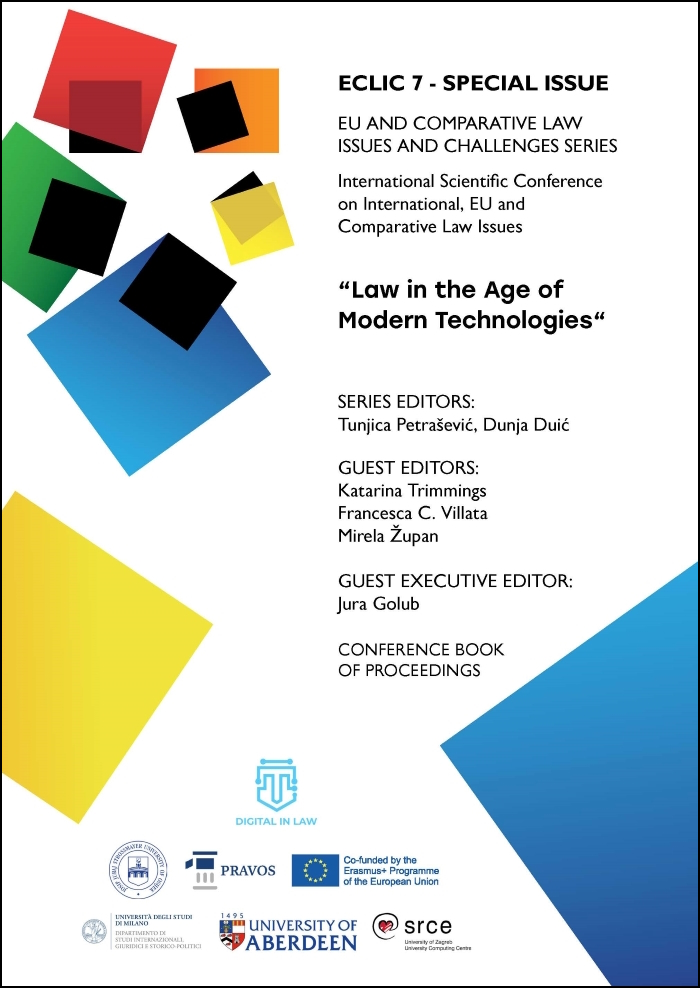SUPPORTING LAW TEACHERS’ IN THE DEVELOPMENT OF MOOCS
DOI:
https://doi.org/10.25234/eclic/28272Abstract
Modernising law and legal education are inevitable in today’s society. Possible arguments for not taking such steps disappeared with the pandemic which fostered processes which were postponed or were found as not applicable. Onwards, the COVID-19 pandemic has further accelerated the existing trend toward online and hybrid learning. It uncovered new and innovative ways for students and educators to organise their teaching and learning activities and to interact in a more personal and flexible manner online. Several papers and policies on the European level, among them Digital Education Action Plan highlight the importance of developing a high-performing digital education ecosystem and higher levels of digital capacity of education and training systems and institutions. Still, the process of modernisation and digitalisation of law and legal education is complex and requires significant efforts and resources from all stakeholders involved. The important aspect in this process is teachers’ preparedness and ability to implement digital technologies in teaching and learning, the support they need in this process as well as their training in digital skills to be able to properly use and implement digital technologies using new teaching methods and digital pedagogies. This paper discusses how to support teachers in the digitalisation of law and legal education and teachers’ training in acquiring necessary digital competences. This is part of the Erasmus+ project Digital in Law Education (DIGinLaw) where one of the results is the development of 12 MOOCs on the topic of law and legal education in higher education. The aim of this paper is to reveal the significance of organizational support for teachers and the importance of developing teachers’ digital skills and competences for successfully meeting the challenges of the digitalization of legal education. The paper describes the process taken to support teachers in the development of MOOCs including their training in digital skills. The results of the research – the proposed model of supporting and training teachers in MOOC design - can be applied to similar requirements for higher education teachers’ support in implementing digital technologies in teaching and learning. Using the survey as a quantitative research method and in-depth semi-structured interviews as a qualitative method, the paper gives insight into teachers’ readiness to use digital technologies and what kind of support and training they need to sufficiently implement digital technologies in the educational process.
Downloads
Published
How to Cite
Issue
Section
License
Copyright (c) 2023 Sandra Kučina Softić, Tea Čičko, Petra Kvočić, Tona Radobolja

This work is licensed under a Creative Commons Attribution-NonCommercial 4.0 International License.
Authors retain the copyright on the papers published in the Journal, but grant the right of first publication to the Journal. Papers accepted for publication or already published in ECLIC of the Faculty of Law in Osijek may be published by the author(s) in other publications only with proper notice of its previous publication in ECLIC.


